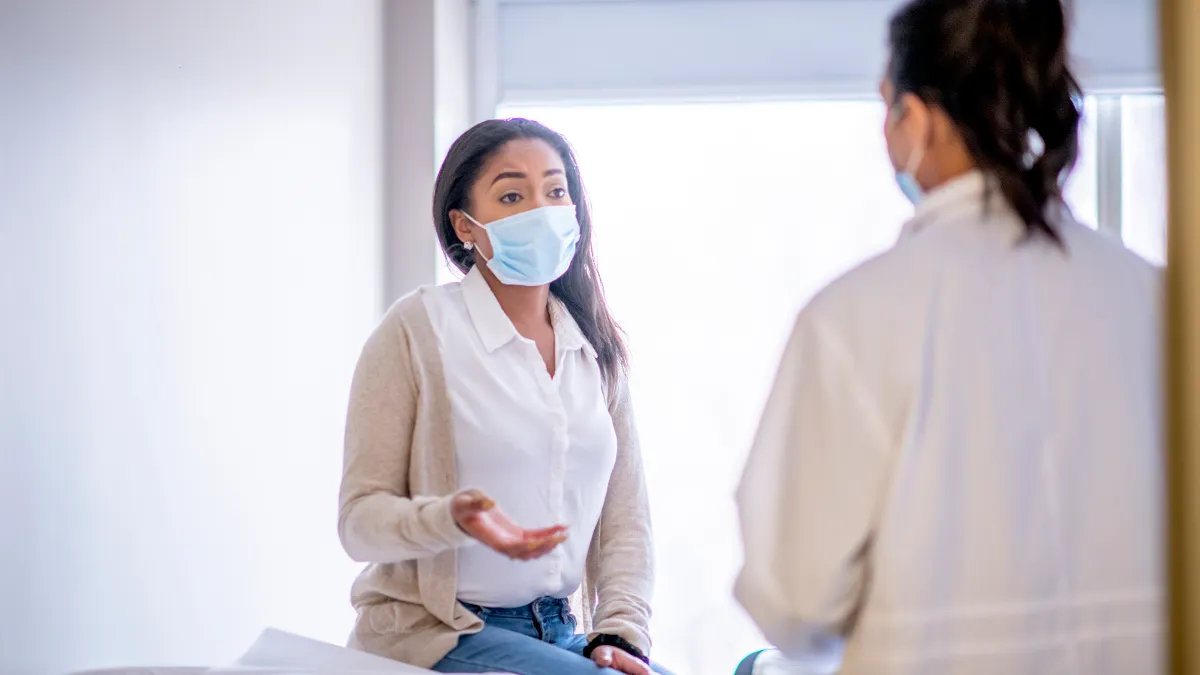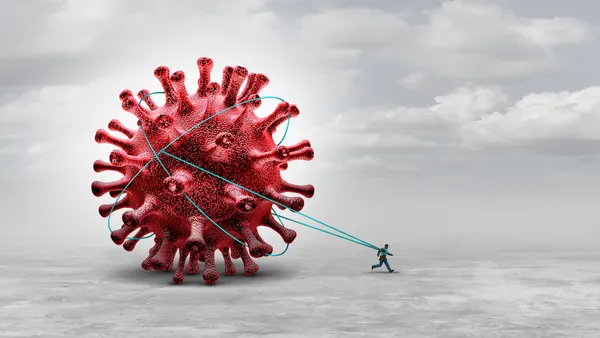While AbbVie’s blockbuster Humira (adalimumab) was not the first biologic medicine to lose patent exclusivity, it recently created a lot of ‘biosimilar buzz’ among the pharma marketing community. The first biosimilar approved under the abbreviated pathway established by the Biologics Price Competition and Innovation Act (BPCIA) launched in the U.S. in 2015, and according to the IQVIA Institute, there may be ten more biosimilars approved and prepared to launch by the end of 2023.¹
“By innovating the commercial model, reducing time to market, and managing portfolios and development costs,” said McKinsey & Company in 2021, “companies can bring more biosimilars to market and faster.² While relatively brief, this history can provide lessons to guide the marketing of biosimilars in the years to come.
Biosimilars are not generics
Many pharma marketers have experience either marketing, or competing with, AB-rated small-molecule generics, which are drugs that meet the necessary bioequivalence standards established by the Food and Drug Administration (FDA). In contrast, biosimilars are “approved by the FDA by demonstrating that they are ‘highly similar’ to the reference product. That means that they are close enough in duplication to accomplish the same therapeutic and clinical results, but not an exact copy”³ and not considered generic versions of biologic drugs.
Once approved by the FDA, a biosimilar must have an additional designation to be considered interchangeable with its biologic reference product to allow for substitution at the pharmacy⁴. And according to a 2023 report from Cardinal Health, an interchangeability designation matters to a majority of specialists in dermatology, rheumatology, and gastroenterology. In the case of adalimumab, for example, “over 60% of providers across all therapeutic areas will only feel comfortable prescribing an adalimumab biosimilar if it has an interchangeability designation.”⁵ In addition, the Cardinal Health report found that patient out-of-pocket (OOP) cost would also be a key decision criteria for utilizing an adalimumab biosimilar.
Biosimilars behave more like brands
While there are a handful of ‘branded generics’ that have gone through the abbreviated new drug application (ANDA) process and are assigned a trade name in addition to their chemical name, most generics use the same chemical name as the reference product, such as ‘omeprazole’ — and nothing more. Biosimilars are different, launching with FDA-approved brand names and often deploying the type of sales, marketing, and patient support infrastructure we associate with branded prescription treatments. This is primarily due to the complexity of how these specialty treatments are made, distributed, prescribed, and administered to patients.
Patient support for biosimilars may be uneven
Marketers of reference biologics have set and met high expectations over the past two decades with healthcare providers (HCPs) and patients about the level of support they can expect when starting and staying on biologic therapy, and these expectations likely extend to biosimilars.
“The company bringing a biosimilar to market has a big impact on the resources invested at launch and beyond,” according to Bansi Nagji, President, Healthcare at GoodRx. “For example, smaller biotechs and pharmaceutical companies may not have the infrastructure or in-house expertise to help patients with prior authorization, copay and other financial assistance, or injection training.” In cases like these, external partners like GoodRx can help create the ‘virtual infrastructure’ needed to support patients new to biosimilars or need to switch to a biosimilar from a reference product.
Biosimilar awareness is steadily increasing
Awareness of biologic therapies among HCPs and patients has grown due to increasing FDA approvals, widespread clinical use, and direct-to-consumer (DTC) advertising. The recent boost in biosimilar awareness is primarily due to Medicare Part D reimbursement and greater availability at the pharmacy counter.
Each year providers gain more experience with biosimilars, which can lead to more confidence when discussing them with their patients. HCPs can have a big impact on patients’ perception of biosimilars and are an important and credible source of information and advice. In addition, several top-twenty pharmaceutical companies have dramatically increased their online resources and digital content about biosimilars, and over the past few years GoodRx has also authored many patient-focused articles about biosimilars. Biosimilar marketing teams can partner with GoodRx to promote awareness of their products to patients using GoodRx Health and HCPs using GoodRx Provider Mode. In addition, GoodRx performance marketing programs deliver the right audiences to highly credible and relevant biosimilar information on the platform.
GoodRx’s increased specialty focus also supports biosimilars
Over the past 11 years GoodRx has gained unique insights about a range of specialties, including their similarities and differences when it comes to HCP behaviors and patient affordability. GoodRx solutions support a broad variety of specialty therapies, including vaccines, biologics and other targeted therapies, and medical diagnostics and devices.
GoodRx solutions can extend the reach of patient support and copay programs for pharma manufacturers that have existing specialty infrastructure, as well as deliver supplementary solutions — from awareness to access to adherence — for companies and brands that may not have a complete patient support ecosystem in place. Here are a few examples:
- GoodRx Assist – Point-of-sale (POS) rebate program that attracts cash-paying patients who require additional financial assistance to start and stay on medication
- GoodRx Health – Content hub that helps patients find answers with thousands of credible articles and videos
- GoodRx Provider Mode – Healthcare providers consult GoodRx at the point of prescribing to help patients with access and affordability
- Integrated Copay Card – Extends the reach of manufacturers’ existing copay assistance programs to GoodRx’s massive and loyal patient audience
- vitaCare from GoodRx – Pharmacy services platform that helps patients understand coverage, identifies available savings opportunities, facilitates communications between providers and payers, and fulfills prescriptions for patients.
GoodRx Pharma Manufacturer Solutions proactively partners with pharmaceutical companies to help improve patient access and affordability for prescription medications across both retail and specialty brands. GoodRx serves more than 100 million unique annual visitors and an estimated 865,000 providers who use the platform to find resources for their patients.
To learn more about how Pharma Manufacturer Solutions at GoodRx can support your marketing strategy, click here or contact a sales representative at [email protected].
References:
¹ IQVIA Institute, “Biosimilars in the United States 2023-2027:Competition, Savings, and Sustainability,” January 2023.
² Ying Chen, et al. “An Inflection Point for Biosimilars, June 7, 2021,
https://www.mckinsey.com/industries/life-sciences/our-insights/an-inflection-point-for-biosimilars
³ Christopher Curley, “Biosimilar Drugs to Humira Are Arriving: Why Prices Won't Be Significantly Lower,” February 3, 2023, https://www.healthline.com/health-news/biosimilar-drugs-to-humira-are-arriving-why-prices-wont-be-significantly-lower
⁴ U.S. Food and Drug Administration, “Biosimilar and Interchangeable Biologics: More Treatment Choices, October 12, 2021,
⁵ Cardinal Health, “2023 Biosimilars Report,” January 2023.








